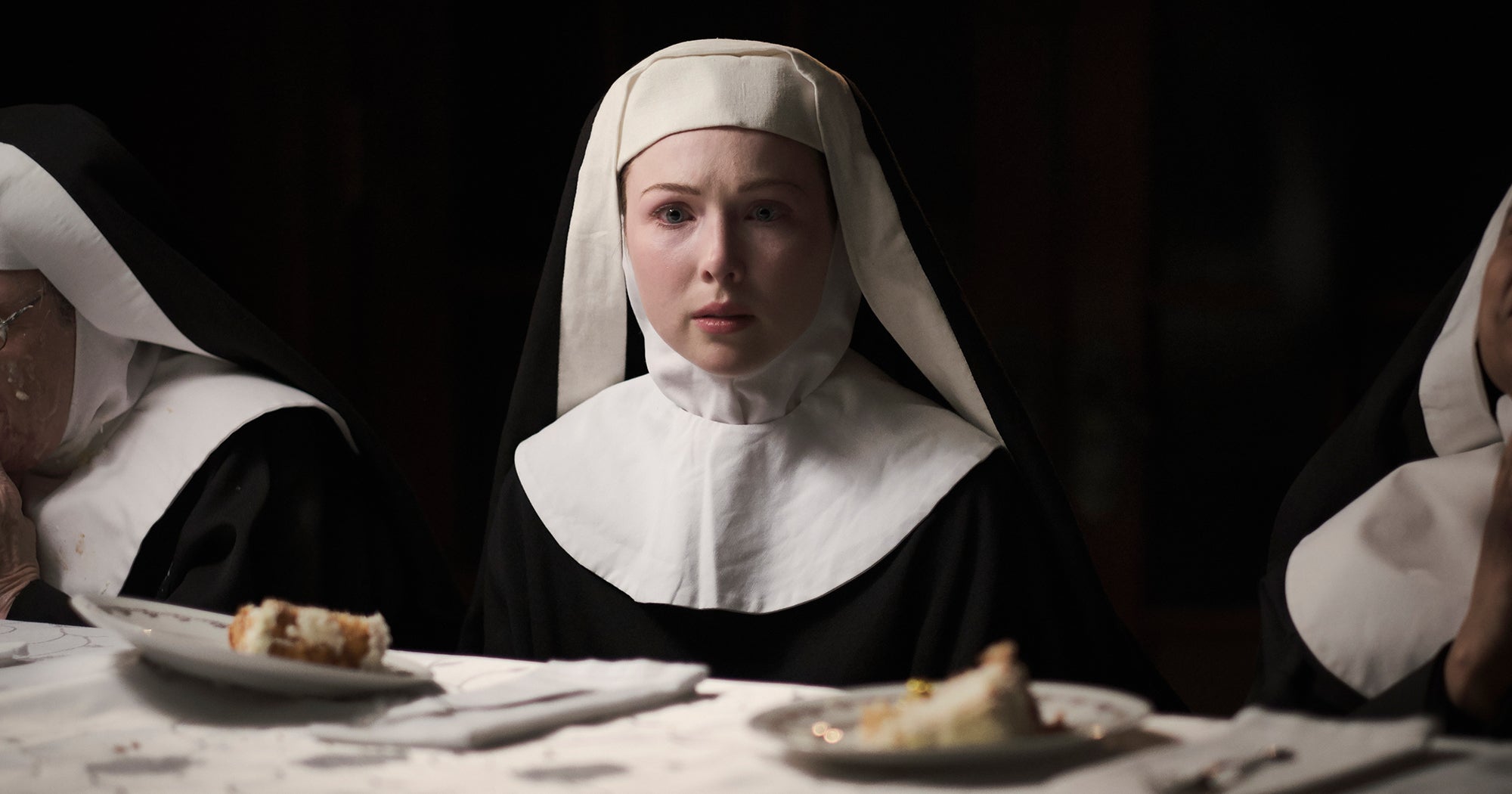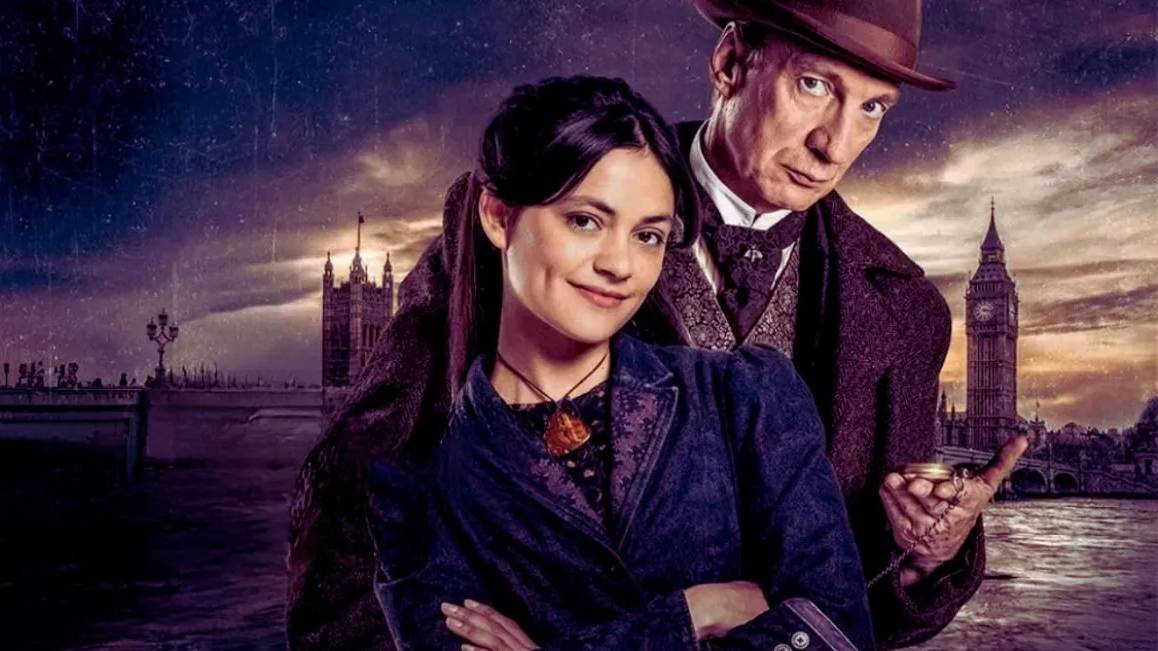What to Watch Verdict
Starts off good, if uninventive, but doesn't recover from a mid-film narrative swerve.
Pros
- +
Surprising (blasphemous) humor
- +
Would watch a Father Donaghue movie
Cons
- -
Mary's promotion to main character doesn't work
- -
Drops too many subplots out of nowhere
- -
The tonal shift isn't handled gracefully
According to his IMDB bio, filmmaker Mickey Reece has made 25 feature films over the past decade or so, which is a remarkable feat. Even more remarkable is that I've somehow never seen any of them and am only familiar with one of the titles (Climate of the Hunter, his previous effort), even though he's had history with Fantastic Fest. So my introduction to his work (described by a friend as "Like Neil Breen if he had talent") was his latest FF entry, Agnes, which is said to be his most ambitious film yet.
The title character (played by Hayley McFarland from The Conjuring) is a young nun who has seemingly been possessed by a demon (or the devil himself?), prompting the church to send Father Donaghue (Ben Hall, a Reece regular from what I understand) to investigate and possibly perform an exorcism, as he's had some experience them. They assign a young priest named Benjamin (Jake Horowitz) to accompany him, and we quickly see the difference between the two men: Donaghue is clearly burnt out and disillusioned with the path he's chosen, and takes it upon himself to stress how much life one denies themselves by becoming a priest, a lesson that falls deaf on the ears of on the very devout and committed Benjamin.
So far, so good — a cliché but still engaging exorcism story, buoyed by the interesting nun angle and wildly different interpretations of how to behave in the eyes of the Lord. Some of the nuns are openly smitten by both men, much to the dismay of the incredibly strict Mother Superior, which adds some surprising humor to the mix (Reece and co-writer John Selvidge get a lot of mileage out of breaking the second commandment), and Agnes' possession outbursts often come abruptly, giving the film some bonus tension.
Unfortunately, things take a pretty sharp detour around the halfway point. After a botched exorcism attempt, there is a lengthy cut to black and then, when the image returns, it's some time later and one of the nuns, Mary (Molly Quinn) has left the convent and is trying to make ends meet while working at a grocery store. Agnes only appears in a brief flashback or two for the rest of the film, and most of the other characters never appear again, with their fates not even properly divulged. Mary meets up with one of the other nuns later, who informs us that Donaghue disappeared and Mother Superior died, and that's pretty much the end of the story for everyone but Mary.
Such a switcheroo isn't the worst idea, and it's an admirable defiance of storytelling convention — the problem is that Mary's story isn't the one I would have wanted to follow, if presented with any other options. Her presence in the film up until that point was strictly that of a supporting character, and her backstory, while tragic (her son died) isn't as compelling as many of the other characters who were unceremoniously dropped from the narrative. Eventually she meets up with Benjamin, who answers her "Why does God allow bad things to happen?" kind of question by comparing Jesus to the delicious meat in the middle of an otherwise unsatisfying sandwich; a hilarious metaphor to be fair, but one I listened to while still wondering what happened to his old pal Donaghue.
Instead, the film shoehorns in a pair of recognizable Marvel actors: Chris "Taserface" Sullivan and Sean "Kraglin" Gunn as Mary's lecherous boss and a terrible standup comedian who used to know Agnes, respectively. Nothing wrong with adding a little star power (it'll certainly help the film get wider distribution), but as with the narrative shift in general, their characters aren't given the time to be fleshed out enough to help us forget all those delightfully horny nuns the film had to abandon so that we could meet them. Mary's crisis of faith is sad, sure, and the idea of someone who joined the convent to find peace only to be denied it there as well is a wonderfully tragic concept, but as presented it simply doesn't work, making the film feel like two stories jammed together without proper resolution for either.
Perhaps needless to say, the film's low-key genre elements are ultimately unsatisfying as well. No one should expect a "horror movie," but there are scenes where objects move on their own and Mary seems to get flashes of her supermarket future while still at the convent (long enough for a viewer to say "Wait, was that Toby from This is Us?" a full half hour before he is actually introduced). Neither element is clarified or expanded upon, making me wonder why time was spent on either when it could have been applied to strengthening the film's other, more important elements.
In other words, I didn't mind that it wasn't the exorcism-driven horror movie I believed it to be when I sat down; I've certainly been "duped" by films in the past only to walk out perhaps even more impressed than I would have been if they stuck to my preconception of what they were. The problem with Agnes is that its big swing doesn't connect, leaving me impressed with the attempt but ultimately cold on the film itself.
Agnes is scheduled to be released in theaters and on-demand on Dec. 10 via Magnet Releasing.
In addition to WhatToWatch, Brian Collins has written for Fangoria, Shudder, Bloody Disgusting, BirthMoviesDeath, and ScreamFestLA. He is also the creator of the long running Horror Movie A Day blog, which has spawned a book and a screening series at Los Angeles' famed New Beverly Cinema. When not watching and writing about horror, he can be found giving himself carpal tunnel on Twitter or watching his son play Minecraft on a TV that he can barely consider "his" at this point.












